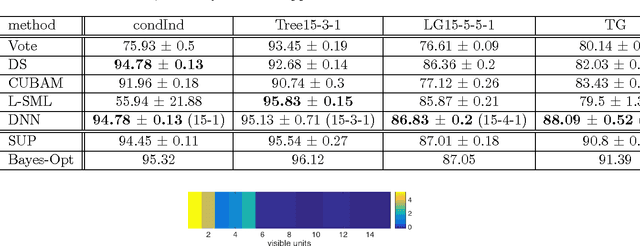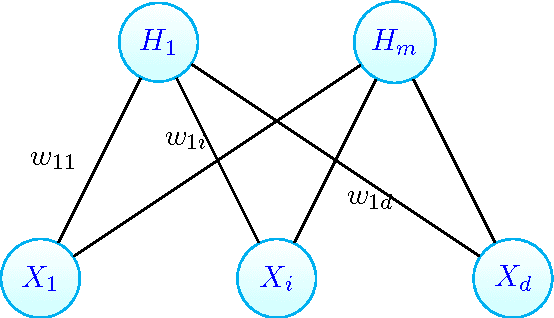A Deep Learning Approach to Unsupervised Ensemble Learning
Paper and Code
Feb 06, 2016



We show how deep learning methods can be applied in the context of crowdsourcing and unsupervised ensemble learning. First, we prove that the popular model of Dawid and Skene, which assumes that all classifiers are conditionally independent, is {\em equivalent} to a Restricted Boltzmann Machine (RBM) with a single hidden node. Hence, under this model, the posterior probabilities of the true labels can be instead estimated via a trained RBM. Next, to address the more general case, where classifiers may strongly violate the conditional independence assumption, we propose to apply RBM-based Deep Neural Net (DNN). Experimental results on various simulated and real-world datasets demonstrate that our proposed DNN approach outperforms other state-of-the-art methods, in particular when the data violates the conditional independence assumption.
 Add to Chrome
Add to Chrome Add to Firefox
Add to Firefox Add to Edge
Add to Edge